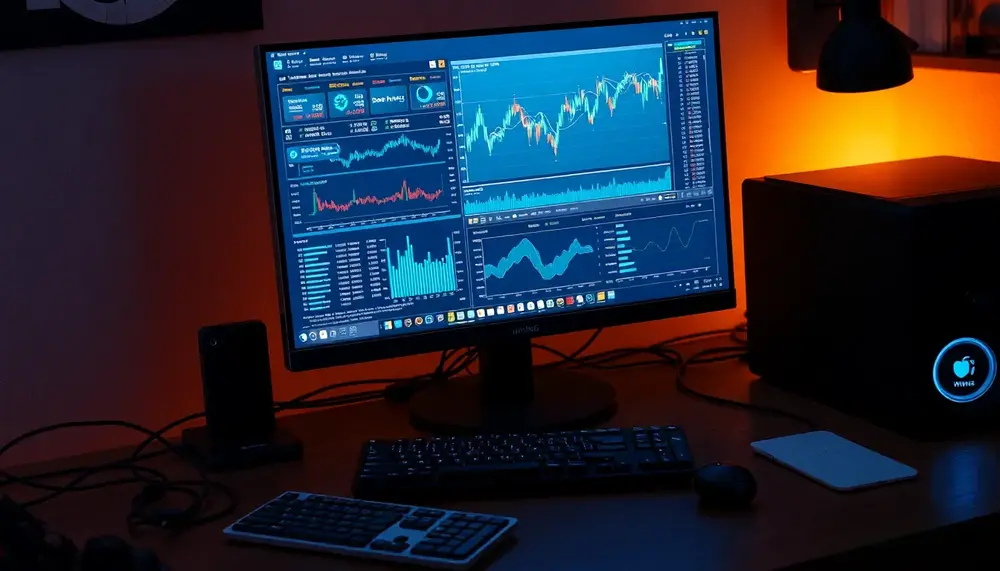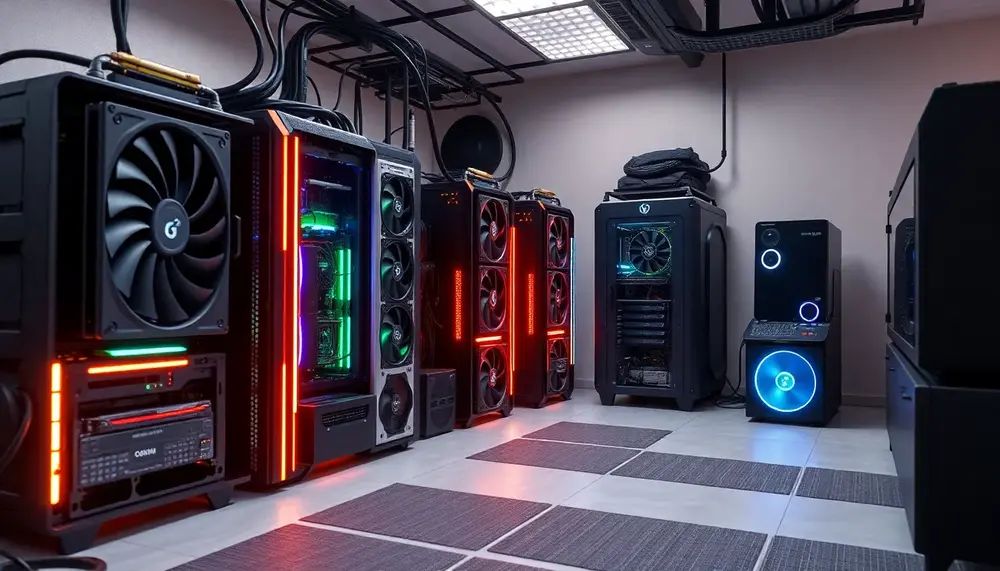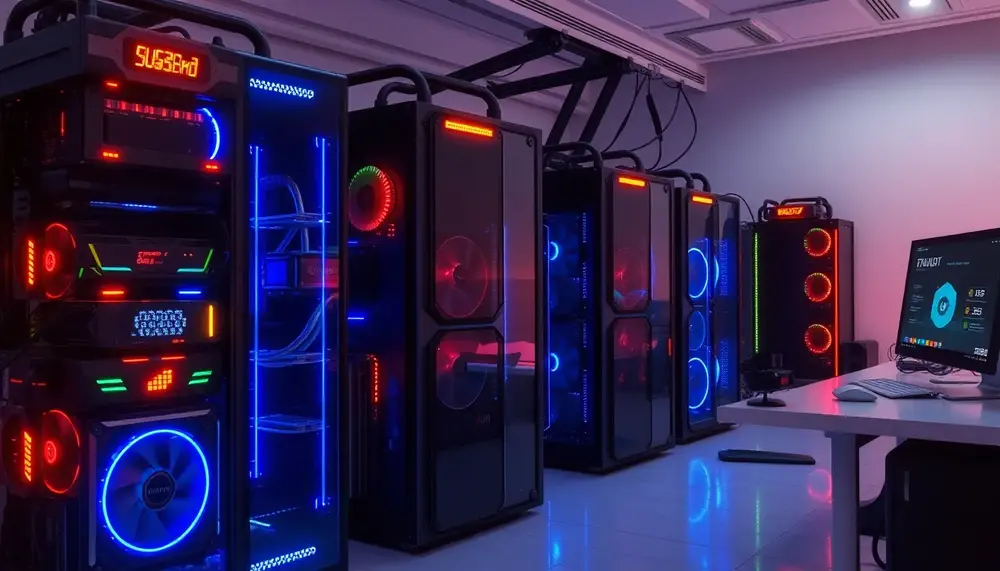Node
Node
Understanding a Node in Bitcoin Mining
Node is a fundamental term in the world of Bitcoin mining that you should understand. In the simplest language, a node is a computer that plays a part in the Bitcoin network. We can compare it to a server in traditional internet setups, but with some key differences.
How does a Node work?
A node maintains and updates a copy of the entire Bitcoin ledger, often referred to as the blockchain. This ledger contains every transaction ever made in the Bitcoin network. This way, the node ensures that all actions in the network remain transparent and within the rules of Bitcoin.
Different Types of Nodes
There are different types of nodes within the Bitcoin mining network. A full node carries a complete copy of the blockchain and checks all transactions based on predetermined rules. These are the most essential types of nodes. "Lightweight" or "SPV" nodes, in contrast, carry only a subset of the blockchain and rely on other nodes for transactions' verification.
The Role of Nodes in Bitcoin Mining
In Bitcoin mining, the role of a node is crucial. The node verifies and relays mining transactions across the Bitcoin network. Once the miner solves a complex algorithm, the node checks the validity of the solution before passing it on to other nodes. This data transmission keeps the Bitcoin network running trustworthy and efficient.
The Importance of Decentralization with Nodes
Unlike typical centralized servers, nodes in the Bitcoin mining network are decentralized. This means that no single authority controls these nodes. This decentralization makes the Bitcoin network robust against attacks, failures, and manipulations. It is one of the key reasons why Bitcoin mining is considered highly secure.
Conclusion
A node is more than just a computer on the Bitcoin network. It is a validator, a rule enforcer, and forms the backbone of the decentralized nature of Bitcoin mining. Understanding nodes enhances your comprehension of how Bitcoin mining operates and its inherent security value.
Blog Posts with the term: Node

This guide simplifies Monero solo mining with XMRig, covering setup and optimization to mine efficiently. It explains the benefits of using XMRig, necessary hardware requirements, and how to set up a Monero wallet for secure fund management....

A mining pool is a collaborative group of miners who combine their computational resources to increase the likelihood of successfully mining cryptocurrency blocks and sharing rewards, essential due to the high power demands that make solo mining nearly impossible. Setting...

This guide provides a comprehensive overview of setting up an Ethereum mining rig, covering essential components like GPUs and motherboards, as well as key concepts such as Proof of Work (PoW) and hashrate. By the end, readers will understand how...

Setting up a mining pool involves configuring the correct URL and port settings to ensure efficient and secure operations, with considerations for cryptocurrency type, geographical location of pools, reputation, fees, supported coins, and security protocols. Understanding commonly used ports like...

Choosing between mining pools and solo mining involves weighing the benefits of shared resources, steady income, and community support against the autonomy, full reward retention, and privacy offered by going it alone; each option has its own set of challenges...

Monero mining requires understanding hashrate basics, choosing the right CPU-focused hardware due to its RandomX algorithm, optimizing software like Xmrig for performance, and continuously monitoring system metrics such as temperature and power consumption to ensure efficiency....

The article provides a comprehensive guide on selecting the right cryptocurrency mining pools, emphasizing understanding basic concepts like pool types and benefits such as increased reward chances and steady income. It also highlights key features to consider, including payout schemes,...

Mining pools allow miners to collaborate and increase their chances of earning rewards by pooling resources, making the mining process more accessible and decentralized. When choosing a pool, factors like fees, payment methods, reputation, size, and server location should be...

Verus mining pools leverage the VerusHash algorithm to offer fair and efficient cryptocurrency mining, allowing even those with regular hardware a chance at rewards; choosing the right pool involves considering factors like fees, payment systems, server locations, and community support....

XRP, created by Ripple Labs in 2012, is designed for fast and cost-effective cross-border transactions using a semi-centralized ledger maintained by independent validator nodes. Unlike Bitcoin and Ethereum, XRP cannot be mined as all its tokens were pre-mined at inception;...

Ethereum mining hardware is crucial for efficient and profitable Ethereum mining, with key factors such as hashrate, energy consumption, initial cost, durability, cooling solutions, and warranty playing a significant role in selecting the best equipment. Top options like AnexMiner ET7...

Mining Verus Coin on your PC is cost-effective as it utilizes existing hardware and offers decentralized, fair distribution without an ICO or pre-mine. The coin's hybrid PoW/PoS consensus mechanism enhances security and efficiency, while the supportive community provides ample resources...

A mining pool node is a server that coordinates multiple miners to solve cryptographic puzzles collectively, increasing their chances of earning rewards which are shared based on contribution; setting one up requires reliable hardware, stable internet, compatible software, and technical...

This step-by-step guide provides essential information for beginners and experienced miners on how to mine Flux, covering necessary hardware, software configurations, and the setup of a Flux wallet. It explains what Flux is, its benefits like profitability and decentralization, and...

